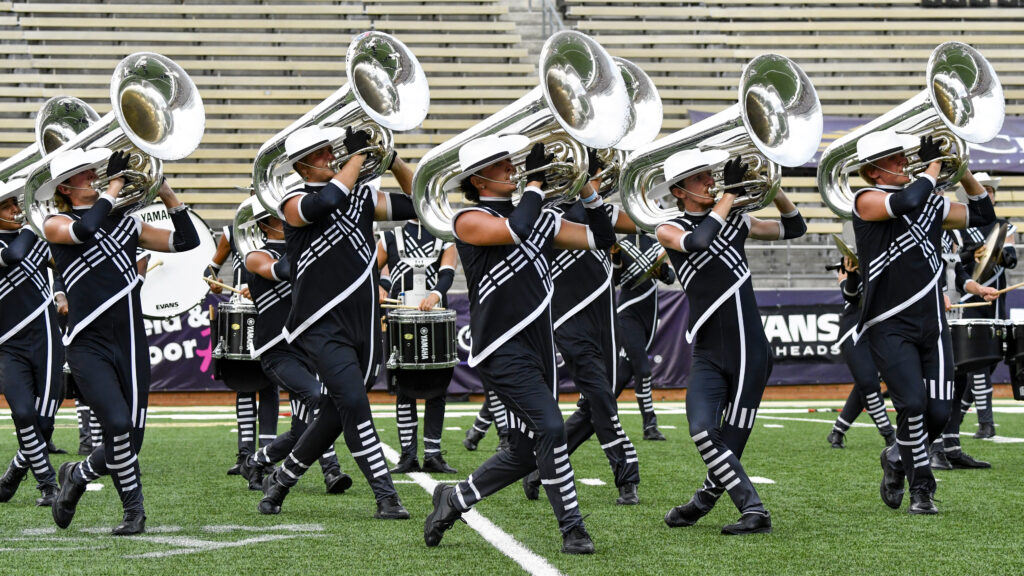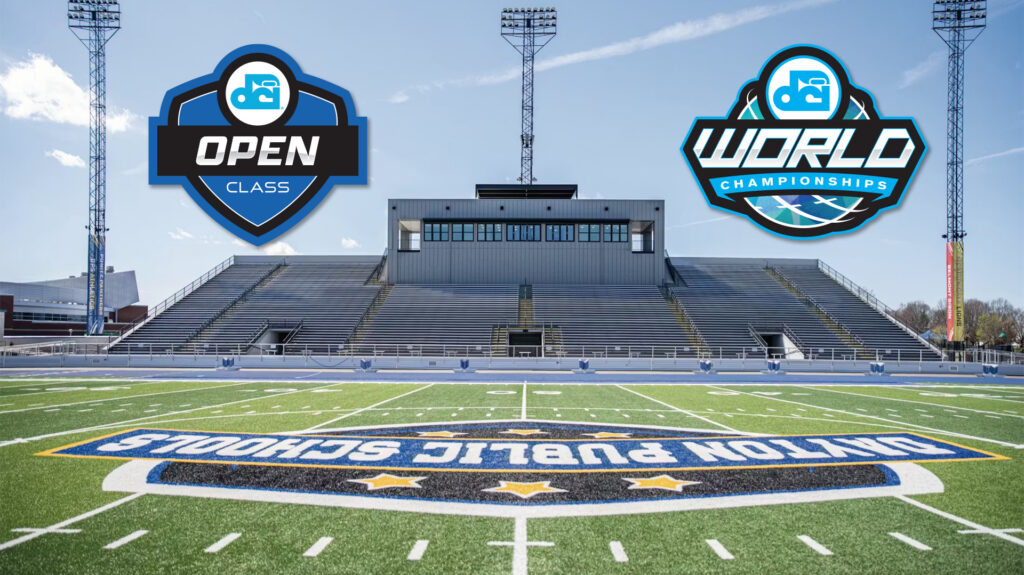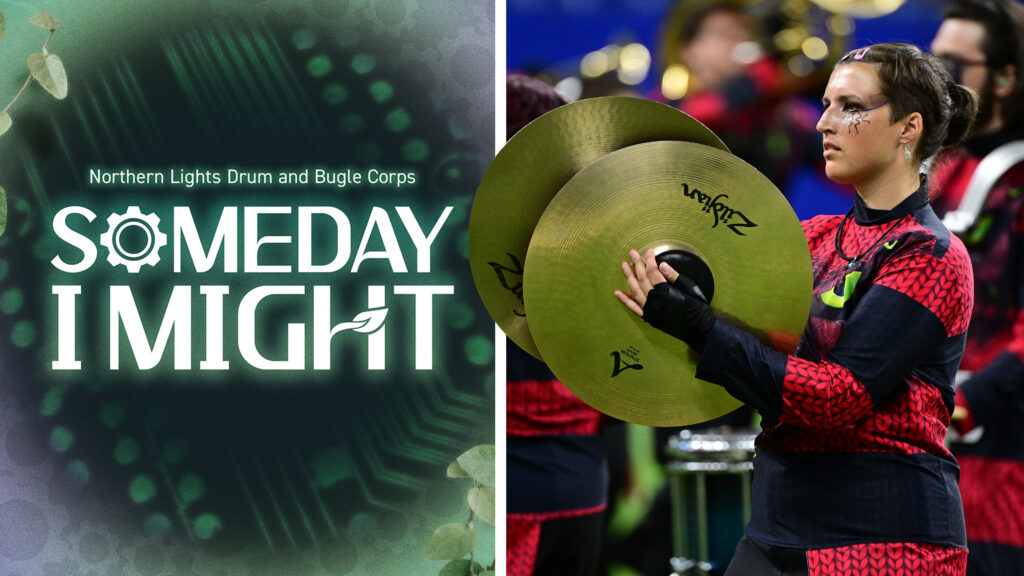[Doug Oakley responded to the two recent Fanfare columns about the Muchachos (January 30 and February 6).] I was present at the 1974 and 1975 DCI World Championships. (I aged out from juniors in 1970.) The show in Ithaca in 1974 was the most spine-tingling performance I have ever witnessed. The crowd had been lathered up all evening trying to get the East past the California corps. The buildup to the Muchachos and the constant chants of “East, East East” led to the lone bugle playing the call to the bullring. This had the crowd literally frothing at the mouth. The Muchachos were like a corps possessed. The actual playing was magical. They were on fire. The crowd exploded at every soprano solo, drum riff and chord. They took louder-higher-faster to a new level. Because of that, we (the audience) were willing to look past the fact that the drill was less than stellar that night. They pushed so hard to make the performance great that something had to give, and it was the drill. They ignited everyone there with the music, got the most amazing standing ovation I have ever been a part of, and won everyone over. That night, the scores seemed totally unfair. (The Muchachos were in fourth place.) But after getting the chance to watch the tapes after the rush had left, it was clear that they were right where they should have been. If anyone was robbed, in my opinion, it was the (third place) Anaheim Kingsmen. But that’s another story. Also, the use of the two-valved bugle did not enter drum corps until 1976. I remember Gail Royer’s impassioned plea to put tradition aside for the sake of musicianship at the DCI seminar in Chicago. Actually, the tide was against going to two valves, but when Royer said they should, they did. And even then, some of the top corps (most notably the 27th Lancers) kept the single valve and rotor. That makes listening to the music coming from the corps of our time even more amazing to me. Thanks for the article. I enjoy remembering what was the most character building time in my life. [Doug was asked to follow up on the issue of character building.] To be honest, the shows were always inspiring to me. Taking the bus home to upstate New York from the World Open or US Open or any of the dozens of Opens that sprang up would create a surreal state of being incredibly tired — and at the same time would cause one to be overstimulated by the exposure to all the different corps at many levels of proficiency. Hallucinations that the trees and signposts and telephone poles were marching as the bus passed by occurred all of the time. I guess that drum corps was my drug of choice. As far as character building, that occurred mostly off of the field. These were things I saw from other corps, things I lived through with my corps, and things I saw others do for the love of the activity. When I entered the drum corps world (as a charter member of the Mark Twain Cadets from Elmira Heights, N.Y.) I was a very talented musician. Playing came easily to me — to say I didn’t have to apply myself, and therefore rarely did, would be accurate. I joined to have another way to perform. To make a long story short, I found out through corps what work and dedication was all about. Of course, our instructional staff made us work. I resented that. The character came from others, kids and adults who were willing to take the gifts they had and — through unbelievable work ethic — be more than they could be. At the 1969 World Open, my corps was bunking at a middle school in Revere, Mass. The Troopers were gods. We heard about their modern buses, multiple sets of uniforms (one for prelims, one for finals), organization, and what we perceived as a pretty cushy gig. Travel at your leisure, have hot food every meal, be treated like celebrities — what a life. Well, the Troopers arrived at our school to use the showers. We expected larger-than-life celebrities. When their buses rolled in, what rolled off was not what we expected. It was the Troopers, but it was several dozen kids, still in uniform from a show in Washington D.C. the previous night (yes, they traveled all night long, in sweaty uniforms, in the bus). They dragged themselves off of the bus and deposited themselves under some trees. One by one they grabbed their gear and went to shower. We were worried that they would never make it to the starting line. They looked dead. But they were still awesome to us. There was no anger, no “please leave us alone.” They talked, laughed about their trip, joked about one of them screwing up. In other words, they were us, except that in those days, the Troopers could have invented the word “clone.” They all looked alike — same size, same shape and same height. The adults gave us some of their broken equipment as souvenirs. It was treasure. We left straight from that encounter to the stadium for the start of prelims. Prelims in Revere meant several dozen corps squeezed into the time slots. Many corps would not show up. As it was, several corps before the Troopers time slot backed out. To the audience, the Troopers were very late. The Boston crowd actually booed them. They stood at the line (with fresh, crisp, uniforms!), stepped off, and within 30 seconds had the crowd standing in awe — from dead to god again in a couple of hours. How did they do it? We went back that evening, and the Troopers were practicing. They were the best in the world, they were bordering on exhaustion, and they were practicing. They weren’t just running through their show, but went through about 32 steps, again and again. This was something we recognized from their show, something that looked perfect from our seats, something they did over and over for the hour we watched them. No complaints, no grumbling, no moans. Our next couple of practices were awesome. We were inspired by their work ethic. It only lasted until we got home — but it never ended for the Troopers. They were the best in the world. We weren’t. It didn’t take much for me to clearly see why. It actually made me better at losing. It didn’t matter what I was involved in — anyone that outworked me got my respect if they beat me, never my ire. I never realized how much those days shaped my life until our first corps reunion last summer. Seeing the friends of my youth and sharing the memories reminded me of all of the growing that we had shared with each other, good and bad. After not seeing most of them for some 30 years, it seemed as if we picked up right where we left off. It’s hard to explain. And it is different now. We all lived in the same community. We practiced every week. We belonged for years. We became long-term family. Today it seems more like a two-month summer camp. Bonds are created because of the intensity of the time together. But it’s not the same. We literally grew up together, over years, not just over a couple of summers.
Michael Boo has been involved with drum and bugle corps since 1975, when he marched his first of three seasons with the Cavaliers.
He has a bachelor’s degree in music education and a master’s degree in music theory and composition.
He has written about the drum corps activity for over a quarter century for publications such as Drum Corps World, and presently is involved in a variety of projects for Drum Corps International, including souvenir program books, CD liner notes, DCI Update and Web articles, and other endeavors.
Michael currently writes music for a variety of idioms, is a church handbell and vocal choir director, an assistant director of a community band, and a licensed Realtor in the state of Indiana. His other writing projects are for numerous publications, and he has published an honors-winning book on the history of figure skating.
His hobbies include TaeKwonDo and hiking the Indiana Dunes.
But more than anything, Michael is proud to love drum corps and to be a part of the activity in some small way, chronicling various facets of each season for the enjoyment of others.





